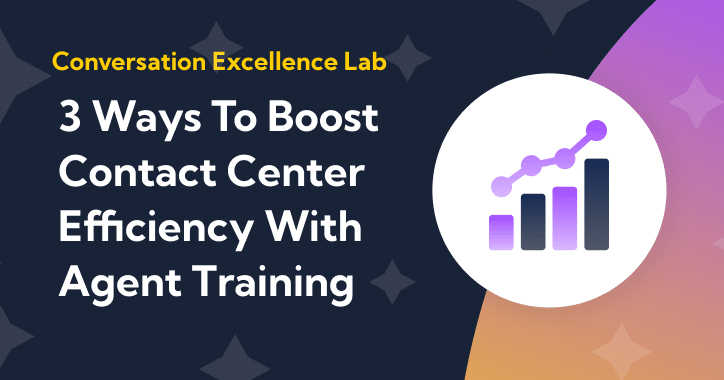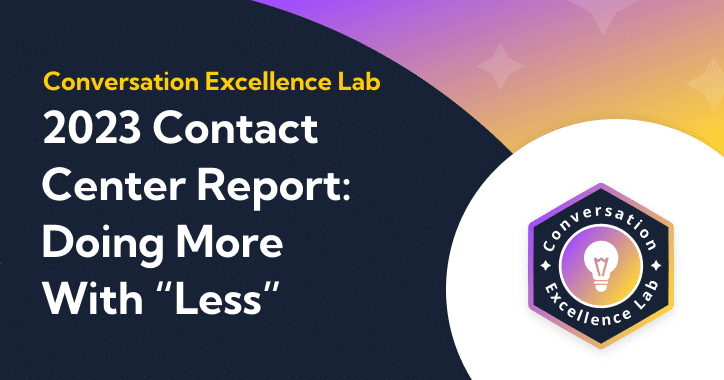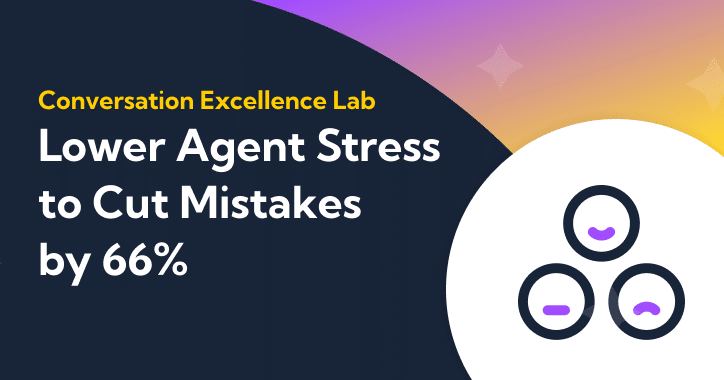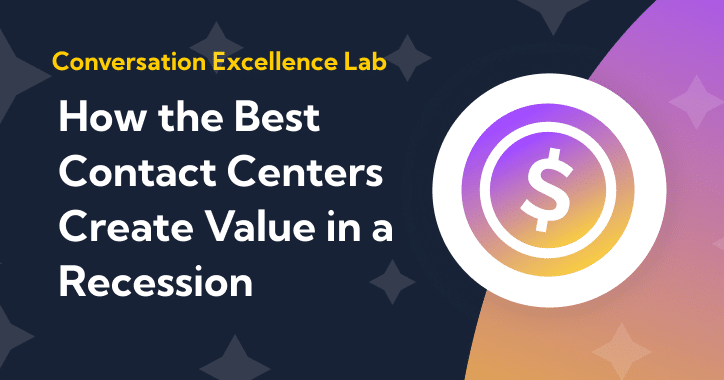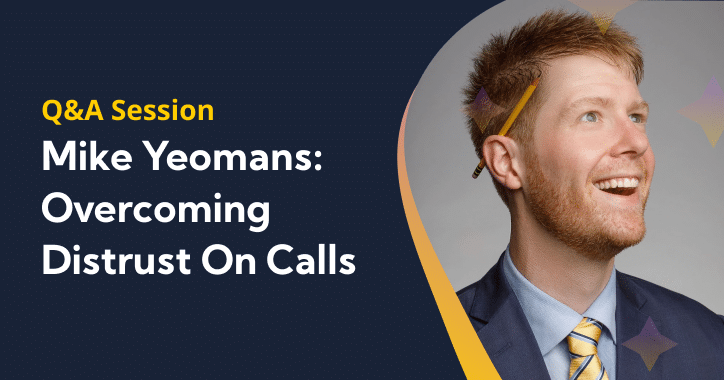Are you actively working on your agents’ cross-selling superpowers?
Whether your contact center deals in sales, customer service, or collections, cross-training agents is the best way to garner revenue and value for your business. Sales agents can answer base-level service questions about your product. Customer service agents can successfully create revenue and increase customer value with the right talking points.
The ability to cross-sell effectively is a superpower. We talked to over 360 executives about what value-add activities their agents engage in, and we learned:
- The most common value-add activities were getting customer information for marketing purposes, letting customers know about incentives and sales, and cross-selling to customers.
- Less than half of agents are trained to ask for online reviews, even though this is one of the most powerful channels to generate new leads and more revenue.
- Up-selling and cross-selling were viewed as the least effective skills for generating value; letting customers know about sales and incentives was viewed as the most effective.
Subscribe to future Conversation Excellence Lab reports below:
What’s stopping agents from creating value on every call?
We asked respondents which of the following activities their agents engage in on the phones:
- Upselling to customers (encouraging them to purchase a higher-end product)
- Cross-selling to customers (encouraging them to purchase related items)
- Asking for online reviews
- Gathering customer information for marketing purposes (ex. quotes, feedback, etc.)
- Letting customers know about incentives and sales
Figure 1: Breakdown of agent value-add activities
The most common tactic that agents used was gathering customer information for marketing purposes. This could include quotes, feedback, demographics, surveys, and more. But even so, only approximately 63% of agents engaged in this activity.
Gathering customer information is integral: without up-to-date data, your organization won’t know who your users are, what they want, or how to best serve them. This need extends beyond the marketing team to the entire company: from engineering and product all the way to sales, who can tailor their strategies accordingly.
Incorporate key questions into your talk track so agents don’t have to think twice about putting these types of questions into action.
Letting customers know about incentives and sales is another tactic that was only used by a little more than half of agents, even though it is likely the easiest and most intuitive of the five tactics to implement.
Think about it: who is more likely to spend money on your product? A cold lead, or someone who is already bought in?
Cross-selling, up-selling, and letting customers know about sales are strong ways to leverage your current customer base — and your agents — to support your bottom line.
Consider running competitions on value-add activities such as the above, or paying out bonuses as a percentage of the proceeds. Giving agents skin in the game is a surefire way to ensure that they adopt new strategies to generate revenue for your company.
Online reviews are the most important but least used tactic
91% of 18-34-year-old consumers trust online reviews as much as personal recommendations.
Consumers expect businesses to have a minimum average Google rating of 3.84 across at least 20 reviews.
In 2022, 77% of consumers reported regularly looking at reviews when browsing — up from 60% in 2020.
Executives said that their agents asked for online reviews only 39.61% of the time, making this tactic the least used value-add activity.
It was also ranked as one of the least effective: we asked executives to rate the effectiveness of each tactic on a scale of 1-5. While most of the tactics rated similarly high in the 4-5 range, asking for reviews received the lowest rating at 3.9.
But even though asking for online reviews was both the least used tactic and one of the least effective tactics, it was rated as one of the most important for the bottom line by executives on a scale of 1-5.
Positive reviews build customer loyalty and serve as organic marketing to bring new customers in.
Lastly: 67% of consumers are open to leaving a positive review about your company if asked.
So, give your agents the tools they need to go ahead and ask.
Cross-train to improve effectiveness (and revenue)
Although cross-selling and up-selling were among the most used tactics, they rated the lowest in terms of effectiveness. These two tactics are similar in practice, with a few key differences:
- Cross-selling involves selling a customer a complementary product for an additional fee, such as extra carry-on luggage for a flight.
- Up-selling involves selling a customer a higher-value product instead of their purchase, such as an upgraded seat for a flight.
According to a 2022 HubSpot survey, 72% of people who up-sell and 74% of those who cross-sell say that these activities generate up to 30% of their revenue.
Compared to asking for reviews and letting customers know about sales, they are also far more complicated to implement. Up-selling and cross-selling involve product expertise, active listening, trust, and salesmanship that other tactics, like gathering customer information for marketing, do not.
This is the power of cross-training: you can turn your agents into uber-agents by training your customer service team on these key sales skills.
But your team can’t sell your products or services if they don’t understand them. Schedule regular training and role plays so your agents can put these strategies into action. They should be up-to-date on your product or service so that when a customer calls in with an issue, they are able to both reactively and proactively suggest solutions that map onto that need.
It’s a win-win: your customer receives more value from your company and your company increases its bottom line and its customer lifetime value.
Sources
Balto. (2022, August 3). How to Recession-Proof Your Contact Center, According to 360+ Executives - Balto Ai. RSS. Retrieved October 4, 2022, from https://www.balto.ai/research/how-to-recession-proof-your-contact-center/
Bernazzani, S. (2022, September 14). Cross-Selling and Upselling: The Ultimate Guide. HubSpot. Retrieved October 4, 2022, from https://blog.hubspot.com/sales/cross-selling#:~:text=The%20difference%20between%20cross%2Dselling%20and%20upselling%20is%20in%20their,version%20of%20the%20original%20product.
Forbes. (2019, September 20). Forbes. Retrieved October 4, 2022, from https://www.forbes.com/sites/forbesnycouncil/2019/09/20/13-smart-ways-to-increase-revenue-from-your-existing-customers/?sh=6d38ec823f78
Pitman, J. (2022, January 26). Local Consumer Review Survey 2022. Brightlocal. Retrieved October 4, 2022, from https://www.brightlocal.com/research/local-consumer-review-survey/
Williams, C. (2019, August 21). Why Reviews Are Essential and How To Generate Positive Reviews For Your Business. Forbes. Retrieved October 4, 2022, from https://www.forbes.com/sites/theyec/2019/08/21/why-reviews-are-essential-and-how-to-generate-positive-reviews-for-your-business/?sh=3f7dff682f9b


